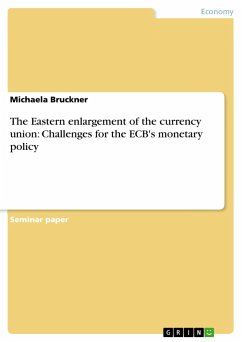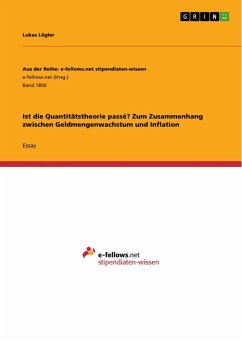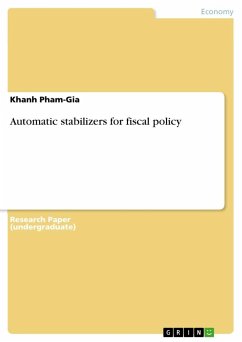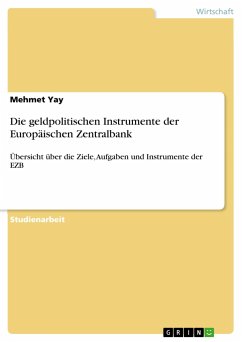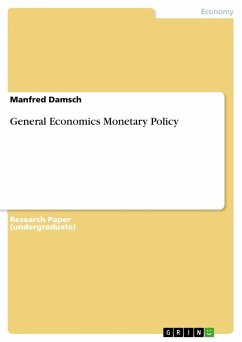
General Economics Monetary Policy

PAYBACK Punkte
0 °P sammeln!
Research Paper (undergraduate) from the year 2008 in the subject Business economics - Economic Policy, grade: keine, University of applied sciences, Munich, language: English, abstract: For now more than 6 years, starting in 2002, the US-Dollar continuously depreciates in relation to the Euro but also in relation to other strong currencies in the world. The European System of Central Bank can help the dollar but not without affecting the Euro. A stable Euro with low and constant inflation of 2% is the main objective of the ECB and fixed in their statutes. The depreciation of the dollar can be ...
Research Paper (undergraduate) from the year 2008 in the subject Business economics - Economic Policy, grade: keine, University of applied sciences, Munich, language: English, abstract: For now more than 6 years, starting in 2002, the US-Dollar continuously depreciates in relation to the Euro but also in relation to other strong currencies in the world. The European System of Central Bank can help the dollar but not without affecting the Euro. A stable Euro with low and constant inflation of 2% is the main objective of the ECB and fixed in their statutes. The depreciation of the dollar can be blended by depreciating the Euro in the same relation but that won't help for long. The impacts on the domestic economy which consists of a range of multicultural states within the Euro Area would be unpredictable. At least high Inflation to the Euro would follow - with negative side effects to the European countries. Even if a weaker Euro (or stronger Dollar) would help the German exportersthe problem of the Dollar is not caused by the strong Euro. Germany is still leading in foreign trade and increases its net-export even though the Euro gets stronger. Since more than 20 years the USA have increased their trade-deficit year on year. The solution for the weak dollar is not a weak Euro. Beside the trade-deficit the enormous costs for military interventions also charge the government budget and lately the population by inflation tax.







